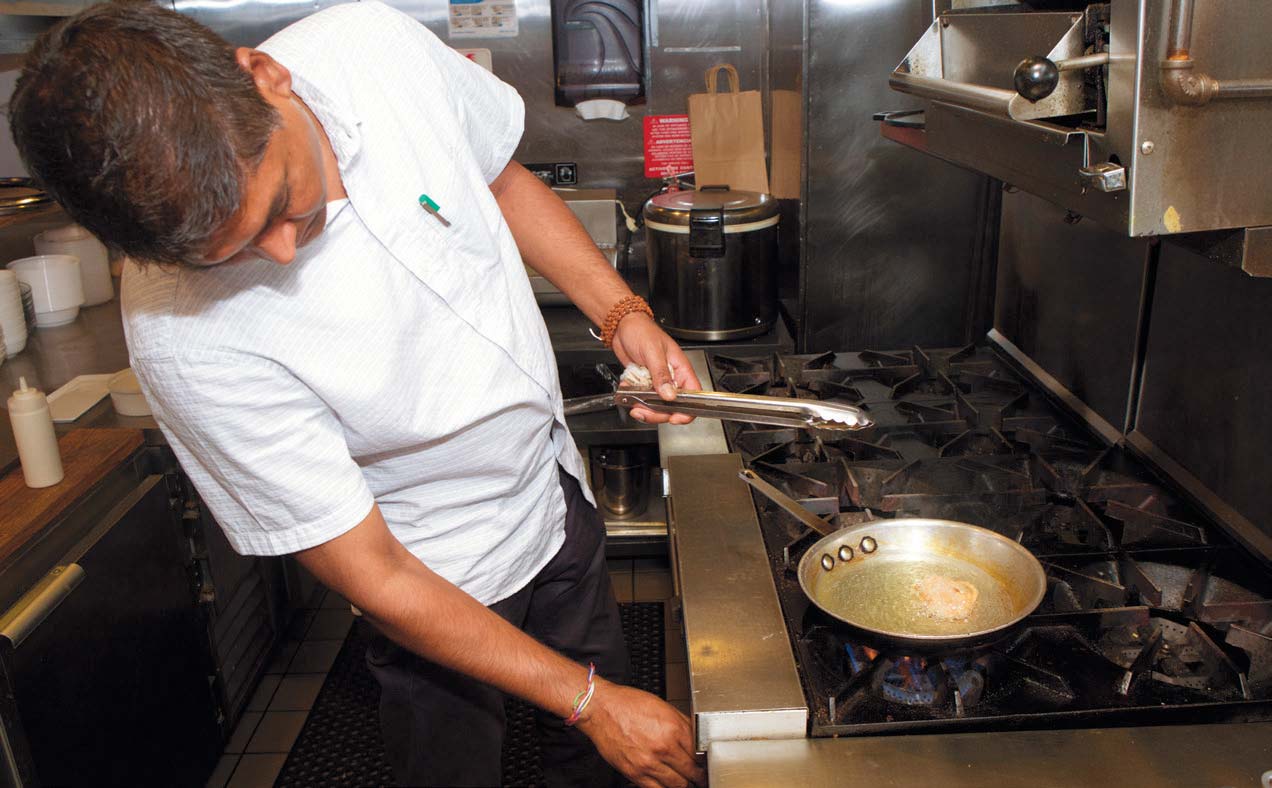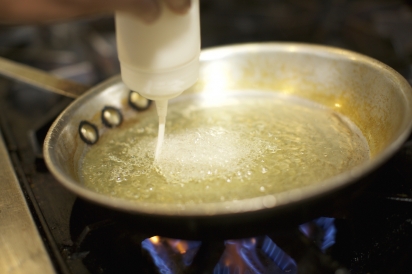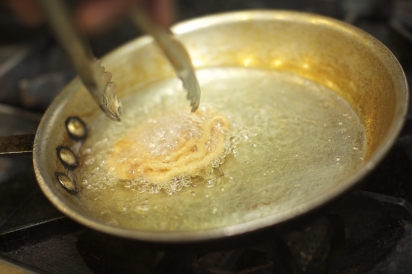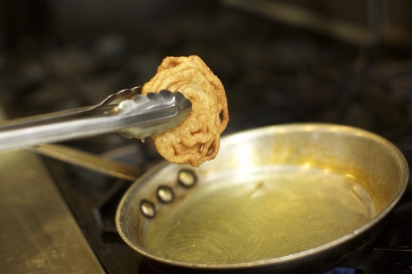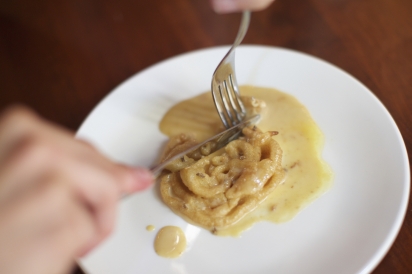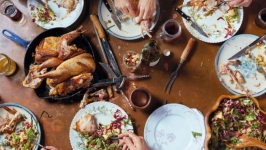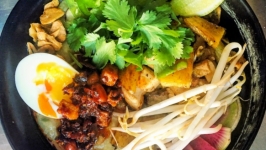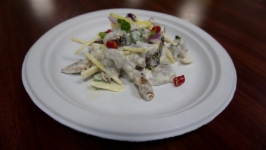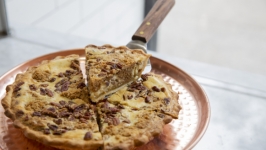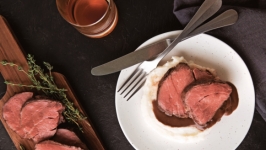Sweet Inspiration
"We made jalebis during the winter storm,” says Sonny Solomon, sounding like he’s narrating the first line of an adventure novel about a band of pastry chefs.
But the owner of Kurry Qulture, Astoria’s first seasonally focused Indian spot, is actually explaining what happened when a record-breaking blizzard hit a few months after he opened his restaurant. His staff braved the storm to come in anyway. So they decided to throw a party. And in Indian culture, a party means sweets.
Solomon closed the restaurant at 8pm and the staff started whipping up a storm of their own. “We made jalebis and decided to put them on the fall menu,” he recalls. Jalebis—warm, delicate coils of deep-fried dough, slicked with saffron syrup—grace Kurry Qulture’s menu in time for Diwali, the Hindu festival of lights that also goes hand-in-sticky-fingered-hand with South Asian “mithai” or sweets.
Over in Jackson Heights, shops like Rajbhog and Maharaja will be busy bagging their bright orange jalebis by the pound. But Solomon’s take on jalebis diverges somewhat from the colorful, crisp confection sold in traditional shops. At Kurry Qulture, jalebis are plated solo, fresh out of the fryer and lightened up considerably. That’s partly because Solomon is thinking of his dessert in the context of an entire meal.
In India, he explains, sweets don’t always work that way—they’re snacks grabbed on the way home from school from the omnipresent sweets shops, offerings to the gods at temples, care packages and gifts for religious and non-religious occasions alike.
“Most of the restaurants when I was growing up didn’t even have a dessert menu.” he says. “You would go to a sweets shop just for sweets—it could be a noon, it could be 5pm.” The bites of sugar-laden happiness sold there, rich with milk solids and traditional ghee (clarified butter), are ideal standalone pick-me-ups, but coming at the end of a big meal they might just knock you out.
To avoid that kind of sweet sucker punch, Solomon keeps his jalebi dough featherweight—flour and water, no yogurt or yeast—and free from artificial coloring. The batter spirals out of a squeeze-bottle into a pan of hot oil, then takes a quick dip in saffron-threaded syrup.
Solomon goes easy on the sugar and fries the coils in canola oil rather than ghee. The lacy tangle that emerges has a pillowy-crisp texture and subtle sweetness not far from a fresh funnel cake. Over the top, Solomon spoons rabri, or thickened reduced milk, and finishes each jalebi with a sprinkle of freshly podded cardamom seeds.
Solomon’s take on jalebis aligns with his reasons for opening Kurry Qulture in the first place. A 15-year resident of Astoria, he saw a need for a neighborhood Indian spot that strayed from standard dishes to celebrate seasonal ingredients in new and unexpected ways. “I wanted people to know that Indian food is not just about chicken tikka masala and vindaloo… The kind of menu we have set up—you don’t find that anywhere in Queens,” Solomon says.
Kurry Qulture’s airy, casual space was also a shift in feeling from Solomon’s high-end Manhattan ventures, Tulsi and Devi—the latter of which garnered North America’s first Michelin star for an Indian restaurant.
At Kurry Qulture, Indian pop music plays through the speakers and the staff dresses colorfully. The name references the playfulness of fan-favorite plates like flash-fried cauliflower in garlicky ketchup and cocktails like the “Curry Flavour”: its recognizable components—coconut syrup and vodka-infused curry leaves—remixed. To accompany its autumn desserts, the menu’s savory dishes incorporate fall fixtures like pumpkin and sweet potato, along with a turkey keema, a minced meat dish that nods at American Thanksgiving.
Experimentation aside, sometimes the perfect fall prescription comes straight from childhood. Solomon is also kicking around a second presentation for his jalebi—served alongside a shot of warm milk—inspired by the sweets vendors he passed on fall mornings growing up in Punjab, who stirred hot vats of it all day long. Poured into a glass to drown the jalebi, the milk made a creamy counterpoint to the sugar-crisped dough, which disintegrated as its syrup dispersed. Whether cold weather consolation or fall festival treat, traditional or reimagined, says Solomon, “jalebis just feel good.”
When he’s not crafting his own desserts at Kurry Qulture, Sonny Solomon likes to stop in for traditional sweets at these Queens spots:
Maharaja Sweets & Snacks
Surya Sweets & Snacks
Sonny Solomon | @sonnysolomon
Kurry Qulture | @kurryqulture
Rajbhog | @rajbhogny
Devi


